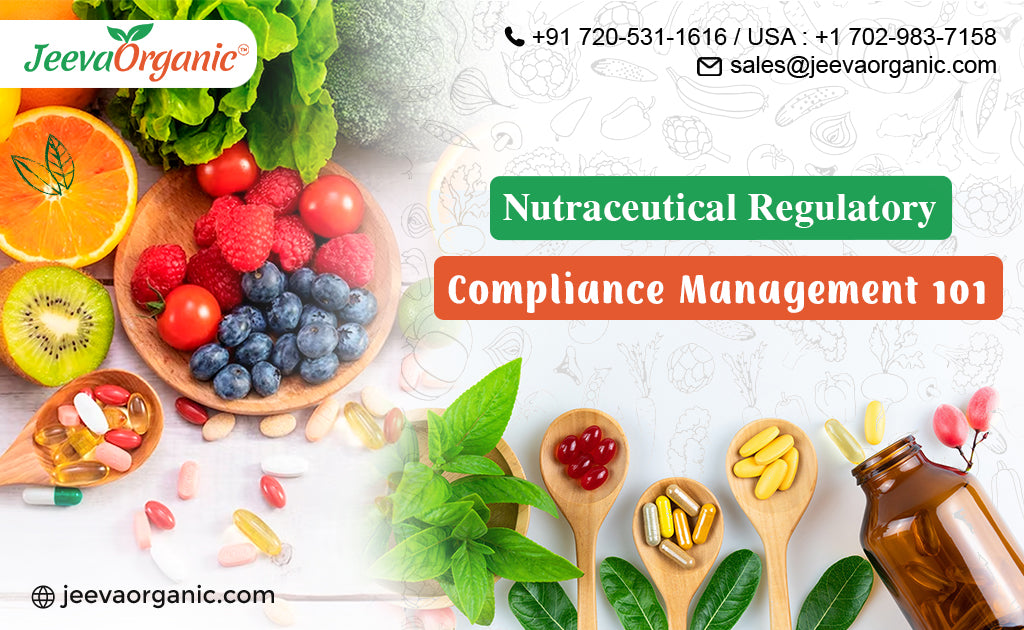
Sourcing Manager's Guide to Regulatory Compliance Management
Share
Regulatory compliance in the nutraceutical industry refers to the adherence to laws, regulations, and standards governing the production, labeling, marketing, and distribution of nutraceutical products. Nutraceuticals combine nutritional and pharmaceutical properties, such as dietary supplements, functional foods, and herbal products. Here's an overview of key aspects related to regulatory compliance in the nutraceutical industry:
#1 Regulatory Agencies
-
Identify the specific regulatory bodies overseeing the nutraceutical industry in your target markets.
-
Understand the guidelines and regulations issued by these agencies.
#2 Good Manufacturing Practices (GMP)
-
Adhere to GMP guidelines to ensure consistent production, packaging, labeling, and quality control of nutraceutical products.
-
Implement procedures to prevent contamination, adulteration, and mislabeling.
#3 Product Labeling and Claims
-
Provide accurate and truthful information on product labels, including ingredients, nutritional content, allergens, dosage, and health claims.
-
Comply with labeling guidelines set by regulatory agencies to avoid misleading consumers.
#4 Ingredient Safety and Quality
-
Source ingredients from reputable suppliers and ensure their safety and quality.
-
Test ingredients for contaminants, verify potency and assess potential risks.
#5 Adverse Event Reporting
-
Establish a system for monitoring and reporting adverse events associated with nutraceutical products.
-
Document and report any adverse reactions, side effects, or health issues to regulatory authorities.
#6 Clinical Studies and Substantiation
-
Conduct well-designed clinical studies to support health claims made about nutraceutical products.
-
Have scientific evidence and substantiation for product safety, efficacy, and claimed benefits.
#7 International Harmonization
-
Consider international harmonization efforts to align with global standards for nutraceutical products.
-
Stay informed about international guidelines and regulations impacting market access and trade.
#8 Compliance Audits and Inspections
-
Be prepared for audits and inspections by regulatory authorities.
-
Maintain proper documentation, implement quality control processes, and have robust record-keeping systems in place.
#9 Ongoing Regulatory Updates
-
Stay informed about changes in regulations, guidelines, and industry best practices.
-
Engage with industry associations, attend conferences, and monitor regulatory agency communications.
#10 Penalties and Consequences
-
Understand the potential consequences of non-compliance, including penalties, fines, product recalls, market withdrawal, and legal actions.
-
Prioritize regulatory compliance to protect consumers, maintain market trust, and mitigate potential risks.
By following these pointers and ensuring regulatory compliance, nutraceutical companies can operate responsibly, meet legal requirements, and maintain the integrity of their products in the market.
Tips to Ace Compliance Management in the Nutraceutical Industry
As a sourcing manager in the nutraceutical industry, effectively managing regulatory compliance is crucial. Here are some tips to help you navigate the complexities of regulatory compliance management:
-
Stay updated on relevant regulations, guidelines, and industry best practices.
-
Familiarize yourself with key regulations, such as GMP guidelines, labeling requirements, and ingredient safety standards.
- Conduct thorough due diligence to assess their compliance track record, quality control processes, and documentation practices.
-
To verify compliance, evaluate their manufacturing facilities, quality control procedures, and documentation practices.
- Specify your standards for ingredients, manufacturing processes, testing protocols, and documentation.
-
Track metrics such as product quality, adherence to specifications, timely documentation, and response to regulatory changes.
-
Keep documents like supplier certifications, test reports, batch records, and labeling documentation organized and easily accessible for audits and inspections.
-
Proactively adapt your strategies and supplier requirements to ensure continued compliance.
- Consult with regulatory experts, such as legal advisors or consultants, to gain insights and guidance on complex compliance issues.
-
Promote a culture of compliance throughout your organization and among your suppliers.
The Bottom Line
Regulatory compliance is not just a legal obligation but a means of safeguarding consumer trust. In an industry where health and well-being are at stake, consumers rely on the assurance that their products are safe, accurately labeled, and meet stringent quality standards.
